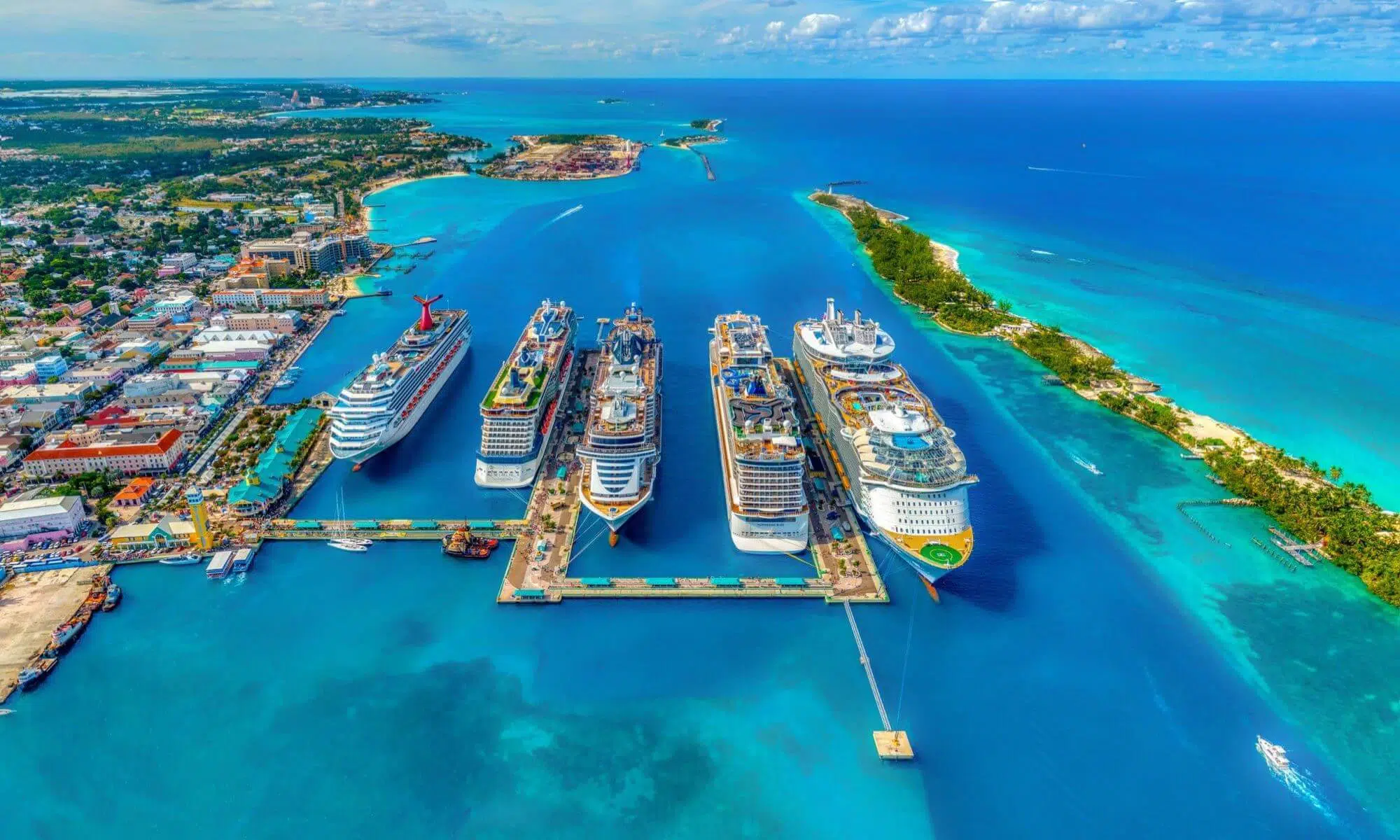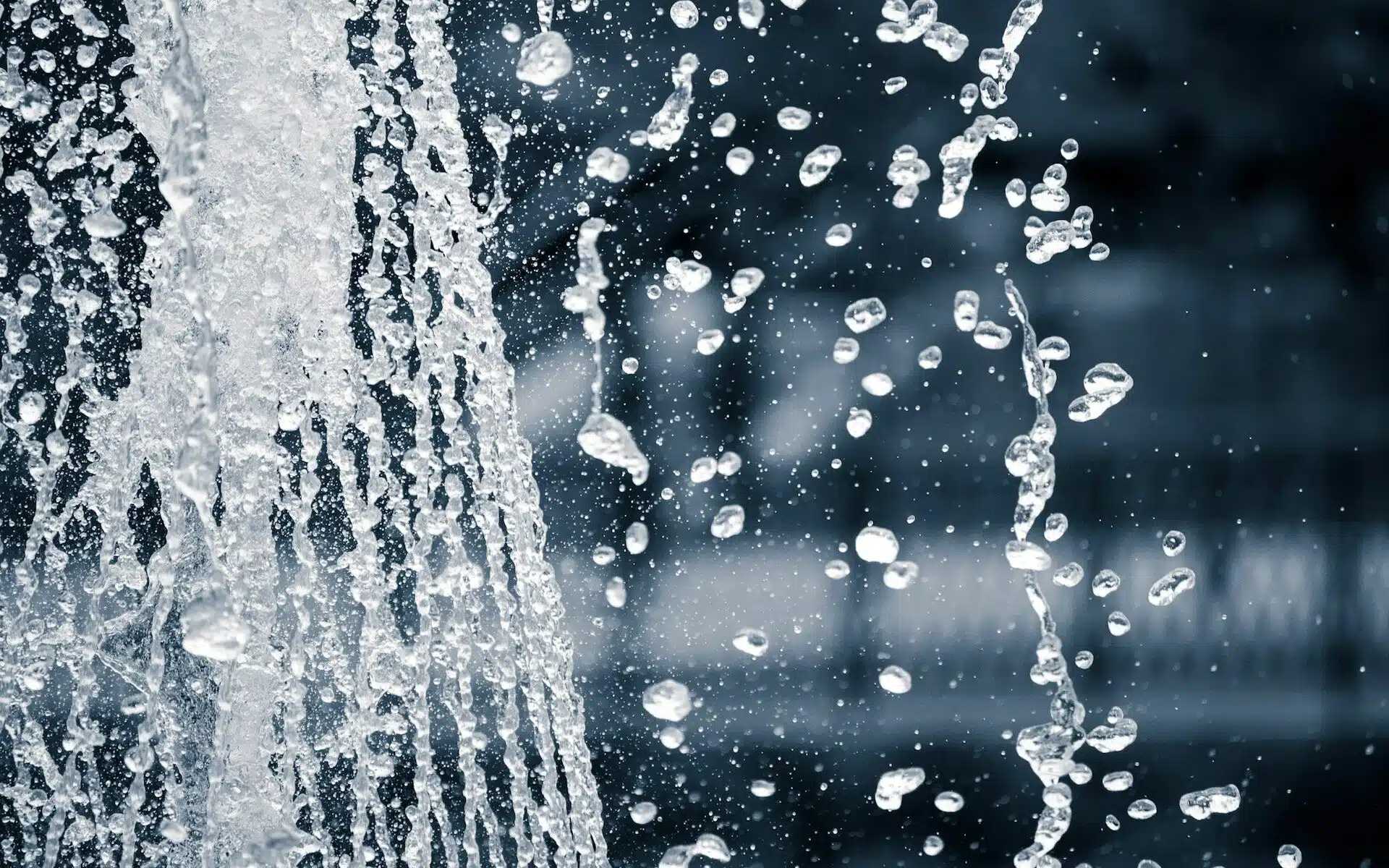Stunning turquoise waters, perfect summer temperatures throughout the year, pristine sands, and over 2,000 cays and islands to explore—it’s no wonder that so many people flock to The Bahamas every year, as both tourists and new residents.
With all this beauty around you to drink in, it can be frustrating to find yourself ill in the middle of what would have been a gorgeous vacation. The culprit? Seemingly innocuous water.
About 7.2 million people in the United States fall sick from waterborne diseases, which is 1 in every 44 folks in the country.
The lesson here? The safety of drinking water isn’t something to be taken lightly, no matter where you travel, no matter how many times you’ve traveled there, and no matter how tough-gutted you think you are.
So, what’s the story with The Bahamas? Can you drink water in The Bahamas? Or are you setting yourself up for a failed vacay if you do? Here’s what you need to know.
Long Story Short
If you’re one of the impatient types and like your answers quick and to the point, you’ll be happy to know that water in The Bahamas is drinkable.
Tap water in The Bahamas generally won’t make you fall ill—we say “generally” because, with so many islands, the water quality is bound to vary, depending on how close to or far away from the center you are (the quality gets better and is guaranteed to be safer as you move towards the center).
However, suppose you’re staying in a resort in any part of the country. In that case, you have almost no cause for worry—resorts chlorinate and filter their tap water more carefully and aggressively than restaurants and other establishments on the islands.
Remember though, that no matter how filtered or chlorinated the water is, it may have a different taste as the country is only capable of desalinizing 95% of the water used for drinking.
If you’re sensitive to a change in water or have a sensitive digestive system, or don’t like your H2O tasting like anything but the water at home, sticking to bottled water is a wise option. Bottled water is easily (and cheaply) available in supermarkets and stores, and is not just guaranteed to be safer but also much tastier than tap water.
Also, if you’re staying in any of the Out Islands, where rainfall is the main water source, tap water may taste brackish, so opting for bottled water here, whether or not you’re sensitive to water change, is recommended.
How Is Drinking Water Processed in The Bahamas?
Water in The Bahamas is purified and processed as per the standards and guidelines set forth by the Grand Bahama Port Authority, the Department of Environmental Health Services, and the World Health Organization.
Water meant for drinking is remineralized, desalinized, and chlorinated before it’s bottled or allowed to run through the taps.
What Affects the Quality of Water in The Bahamas?
Groundwater is the primary source of water for The Bahamas. On islands where groundwater is unavailable, water is transported from islands with water to spare to these islands, via barges.
To deal with the severe decline in groundwater and the increasing demand for water that many islands are facing, the island nation is turning to rainwater and reverse osmosis.
This also means that bottled water is in more demand than ever. This in turn means that the quality of bottled water and the functioning of the bottled water industry are strictly regulated to ensure safety and quality, while the latter is also simultaneously being encouraged to grow.
What all this boils down to is that water quality in The Bahamas mainly comes down to where you’re staying.
Each island receives a different volume of rainfall (the volume of rainfall decreases as you move north to southeast) and has differently-sized stores of fresh water, which are further impacted by tourism and the area’s population density.
For example, in areas such as Nassau, the island nation’s capital city, where over 70% of the whole population resides, many people consider to be the best place to live in The Bahamas, and where about four million tourists flock every year, the water quality is safer than in the surrounding 700+ islands.
For the remaining 30% who inhabit the regions between the capital and the Out Islands, the lack of good commercial water suppliers and insufficient infrastructure mean that the water quality can’t be trusted.
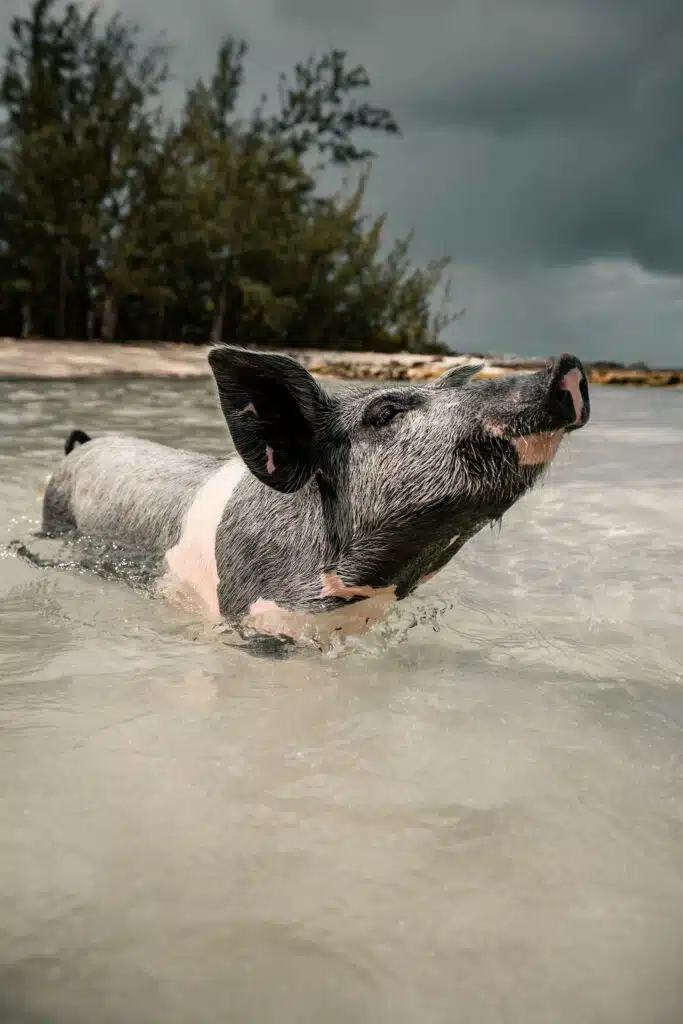
On some of the bigger islands, water quality can even vary as you move through the island, thanks to these factors.
To summarize, here are the different factors determining the quality of water on different islands in The Bahamas:
- Insufficient freshwater resources on some islands—the decline is further exacerbated by tourism and overpopulation. Fun fact (yes, we’re being sarcastic)—tourists use two to five times more potable water than the locals.
- Uneven distribution of whatever potable water is available due to uneven rainfall, the lack of monitored local water suppliers in certain areas, an inefficient distribution system, and disinterest in adhering to water quality standards, especially in areas further away from the capital.
- Tropical hurricanes, flooding, and storms during certain seasons that damage water supply infrastructure and contaminate freshwater sources.
- Pollution from human waste, poor hygiene, old pipelines, and chemicals.
- Improper and unreliable water storage facilities.
So, Can You Drink Water in The Bahamas?
Now that we’ve looked at the water quality in The Bahamas and what factors affect it, where does that leave thirsty tourists? Can you drink tap water in The Bahamas?
Here’s what we suggest…
- Urban Locales: In the island nation’s larger urban spots, drinking water is chlorinated and safe. Residents use tap water every day and so can you if you have a strong immune system and stomach.
Remember, though, that even with a strong system and even in urban areas with safe drinking water, it may take you a few days or weeks to adapt to the tap water in the country, owing to the mineral composition. If you’d rather not risk it, go the bottled water route. - Rural Locales: In The Bahamas, drinking water quality is highly unpredictable and unreliable. It would be unsurprising to find contaminated tap water that contains high concentrations of harmful pathogens, such as E. Coli.
If you’re visiting any of the rural spots, use bottled water or boiled water for activities such as brushing your teeth, drinking, and even making ice cubes.
Keeping Yourself Safe from Waterborne Diseases
Waterborne diseases aren’t a joke—they can cause severe diarrhea and even turn life threatening very quickly. A vacation is usually too short a time to be able to build up enough resistance to new water.
Therefore, unless you want to take the risk and spend your well-earned holiday in your resort’s powder room instead of the natural splendor of The Bahamas (no amount of luxury in your bathroom can ever come close to this, FYI), here’s what you can do to protect yourself against waterborne diseases.
Stick to Bottled Water
This is honestly the most foolproof, easy, and obvious solution to protecting yourself from waterborne diseases on your Caribbean vacation.
However, given how much the demand for bottled water is in the country, make sure that you buy your bottles from reliable sources (resorts, restaurants, and bars). The odds of being overcharged are also much lower in such establishments.
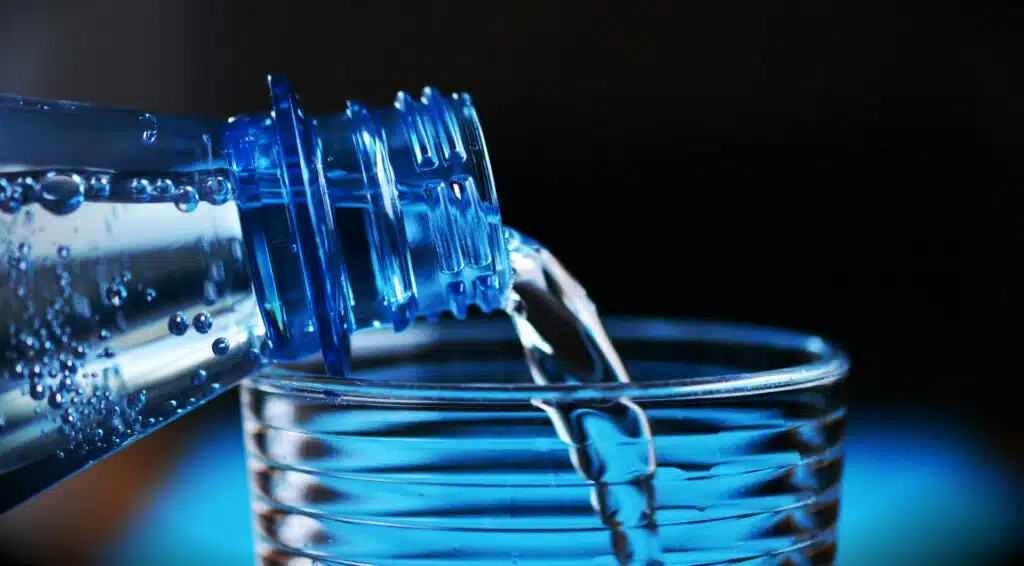
Most resorts give their guests drink coupons which they can exchange for bottled water, at the bar, when they need it, especially in the absence of vending machines. Check with your resort if this is a facility they offer, and if they don’t, complimentary bottled water, at the very least, should be a part of the deal.
Additionally, ensure that the bottle hasn’t been tampered with and that the seal and cap are intact and tightly sealed. You don’t want to be fooled into buying a seemingly reliable product only to find out that it’s old wine in a new bottle—or in this case, tap water in a branded bottle!
You should also check the filling date printed on each bottle, especially in bigger bottles that move more slowly from supermarket shelves.
Though the shelf life of bottled water is two years, plastic can degrade in hot weather and chemicals from it can seep into the water, which affects both the taste and safety of the water. Therefore, find freshly packed bottles of water wherever possible.
Disinfect/Purify Your Water
There are plenty of ways to disinfect unsafe water, from water purification pills to chemical disinfection to filtration. Do your research, figure out what works best for you, and stock up on the necessary equipment before you travel.
Many travelers also swear by powdered moringa seeds for water purification. Studies show that moringa seed powder is a superb coagulant—the protein in moringa seeds binds impurities. Combined with copper and its excellent E. Coli-killing properties, moringa can clean up cloudy water in no time.
Use about 50 to 150 milligrams of powdered moringa seed per liter of water.
Alternatively, you can opt for pre-treated water.
Boil Your Water
Boiling is probably one of the oldest methods of purifying water—the fact that we still use it is a testament to both its efficiency and the timeless power of heat!
Before using tap water, bring it to a roiling boil to destroy all harmful pathogens in it, especially E. Coli bacteria. Let the water boil for at least five minutes before you let it cool overnight and use it.
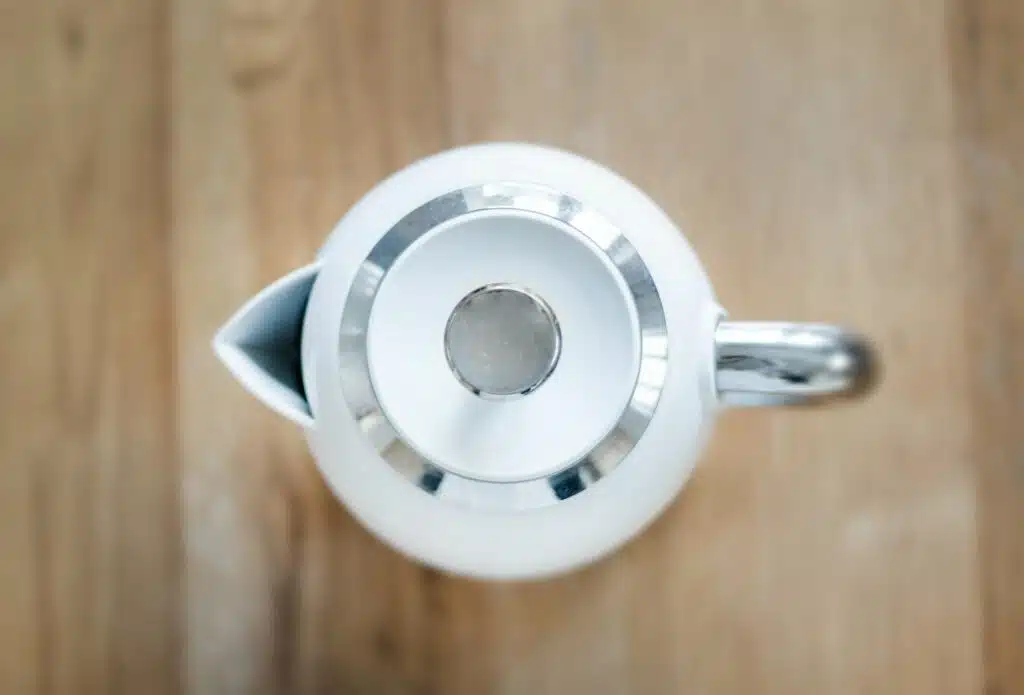
For extra protection, you can add a pinch of salt for every liter of water that you’re boiling, if you don’t mind the slight twinge of saltiness.
Monitor What You Consume/Use
Avoid consuming anything that uses raw tap water, such as ice cubes, juices, and other cold drinks. Hot beverages such as tea and coffee are alright as the water is heated enough to kill pathogens and make it safe before it’s used.
If you must enjoy such drinks (we get it—cold drinks and the sunny climes of The Bahamas are a match made in heaven!), look for luxury resorts, restaurants, and bars.
It’s also wise to avoid tap water while brushing your teeth and washing fruits or veggies meant that you intend to eat raw, especially if you don’t have the strongest immune system.
The Final Word
If the question is “can you drink the water in The Bahamas?”, the answer is yes. If the question is “should you drink water in The Bahamas?”, the answer is that it comes down to your preference and health conditions.
The majority of tourists who travel to The Bahamas face no issues after consuming tap water. However, there have been cases of tourists falling ill, either due to contaminated water or due to the inability of their bodies to acclimatize to the change in water.
The risk of a waterborne illness laying waste to your dream Caribbean vacation is just not worth it, so to make the best of your time in this slice of heaven, bottled water is the way to go.

